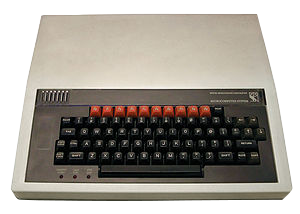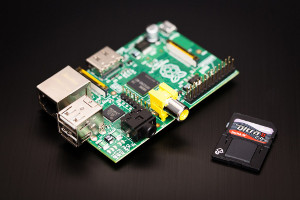
In 1981, the BBC released a personal computer, the BBC Micro.
Although fairly expensive, they were quite popular - even more popular in schools and colleges (which got subsidies for them). This machine might have been responsible for the start of many (perhaps most) computer departments in schools!

There's a great YouTube video online from "Computerphile" called Original Elite on the BBC B that really takes you back to the "golden" age of the hobbyist computer in the UK. Lots of odd machines coming out like the Sinclair ZX80 (later ZX81 and Spectrum) and Acorn Atom. For the Atom, from Wikipedia :
At the time 256×192 was considered to be high resolution.
Richard Hill, now a physicist, talks in a very engaging way about the computer game Elite, a game that a lot of people fondly recall and one that introduced many to realtime 3D computer graphics. This was all done in 32Kb of RAM only and very little processing power compared to today. Not only does he demo the game (loading off cassette tape!), he also shows off a game he wrote himself inspired by it (coding in assembler, later C). Programming was much harder work in those days.
One thing he mentions near the end is that if he was starting out now, he might never have got into programming his game because of the huge number of distractions that make up the modern computer experience. Yes, we have much more power and they are much easier to use, but we also have a massively expanded number of distractions: emails, notifications, tweets, alerts, posts, streams, chats, messages, funny videos. The list goes on. The internet, for all its amazing usefulness, can also be a real time-waster.

It's hard to imagine the enthusiasm and joy this early tinkering can bring to a youngster. This early spirit is something that both the Maker Movement and the Raspberry Pi Foundation are trying to encourage again.
The Raspberry Pi (right) is a real computer and much more powerful than the BBC Micro. Complete with built in distraction though!



